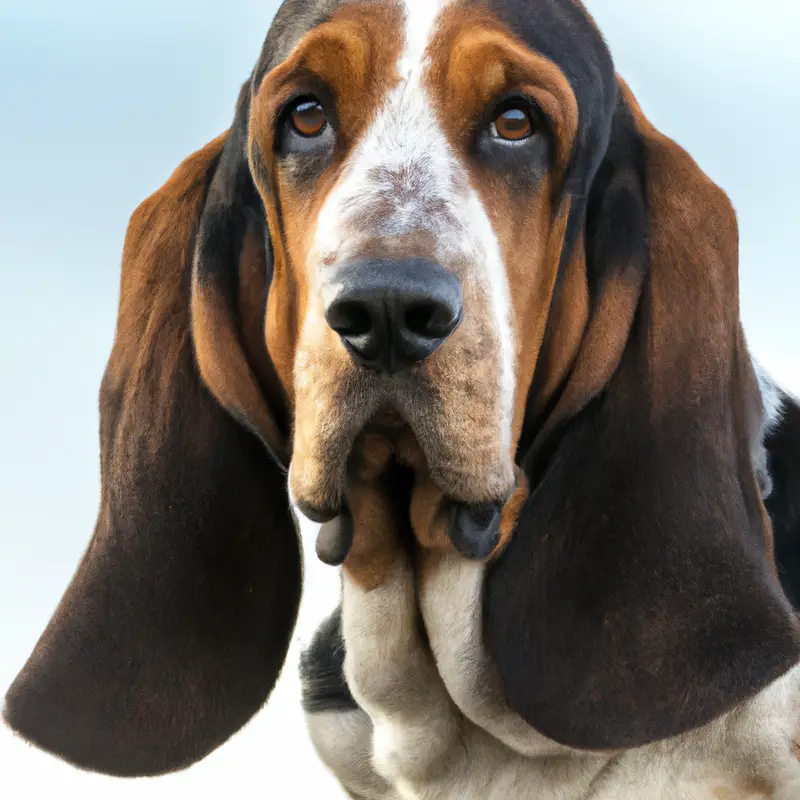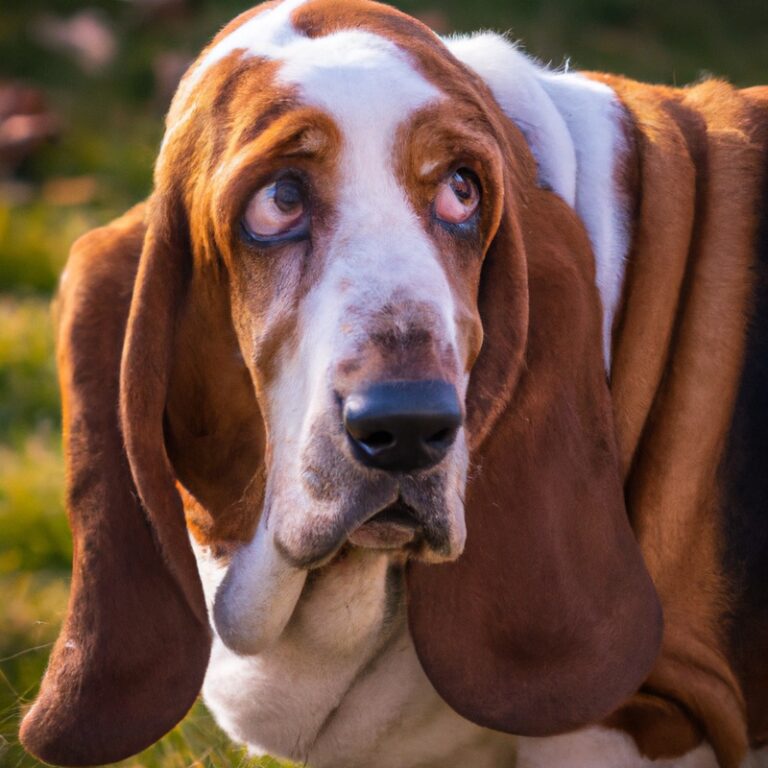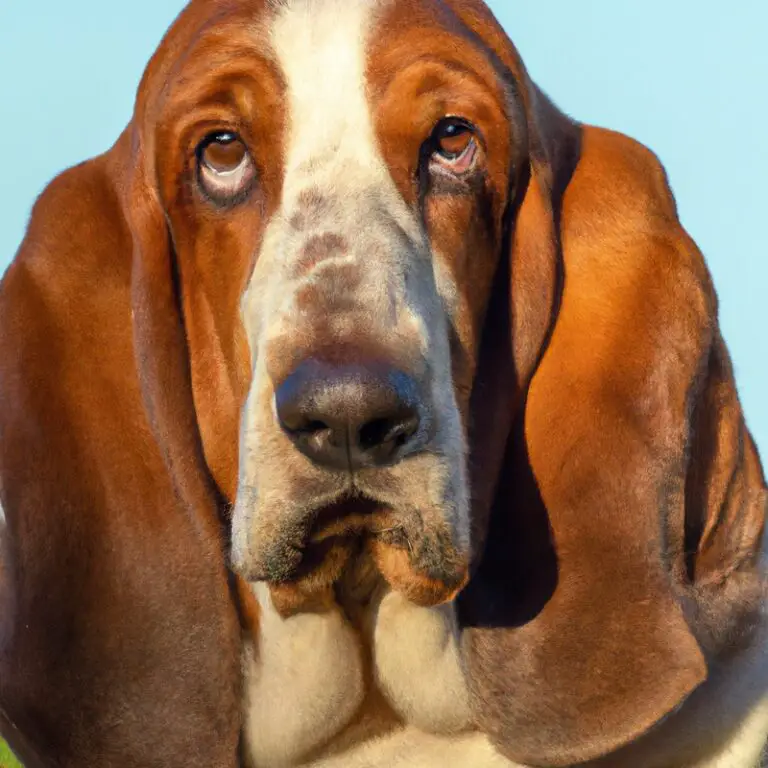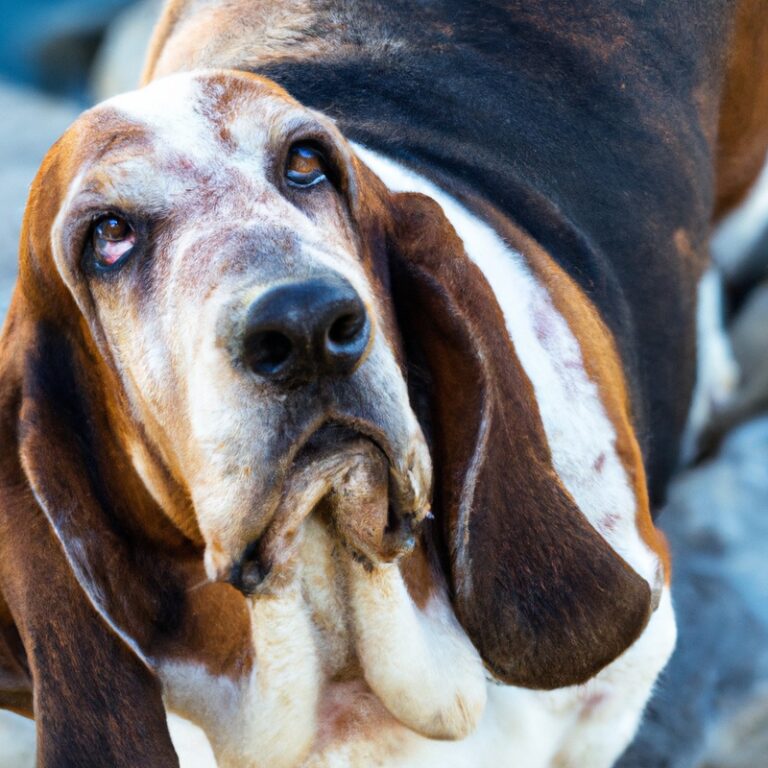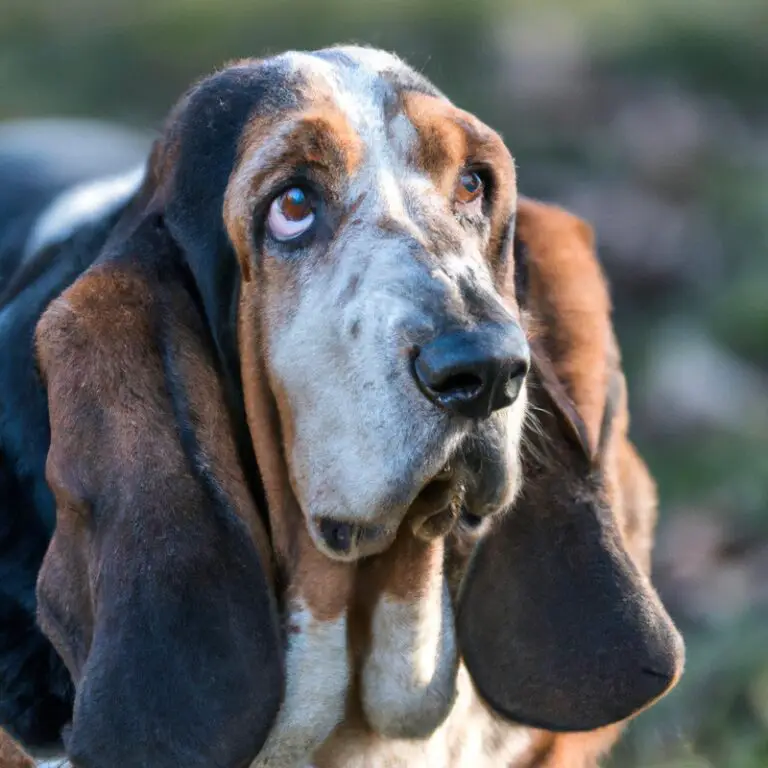Do Basset Hounds Have a Strong Instinct To Protect Their Family?
Key Takeaways:
- Basset Hounds have a moderate instinct to protect their family.
- Their protective behavior is more inclined towards alerting than actively defending.
- Early socialization and training can help strengthen their protective instincts.
- Basset Hounds may not be the best choice for a guard dog, but they can provide a sense of security for their families.
Imagine coming home after a long day, feeling tired and vulnerable. You open the door and instantly feel a sense of security and protection.
As your Basset Hound greets you with their droopy ears and soulful eyes, you can’t help but wonder: do Basset Hounds have a strong instinct to protect their family?
In this article, I’ll delve into the nature of Basset Hounds, their characteristic traits, and explore the depths of their protective instincts. From understanding their instincts to nurturing and managing their behaviors, we’ll uncover the fascinating world of Basset Hound loyalty and protection.
So, let’s dive in and find out just how devoted and protective these adorable companions can be.
| Aspect | Yes | No |
|---|---|---|
| Strong protective instinct | ✔️ | |
| Instinct to guard family members | ✔️ | |
| Alertness to potential threats | ✔️ | |
| Aggression towards strangers | ✔️ | |
| Methods of protection | Barking, growling, and showing teeth | |
| Level of protection | May warn of intruders, but not aggressive | |
| Training as a guard dog | No | ✔️ |
Understanding the Nature of Basset Hounds
Background of Basset Hounds
Basset Hounds are a breed of dog that originated in France.
They were originally bred for hunting purposes, specifically for tracking small game like rabbits.
They have a distinctive appearance with their long ears, droopy eyes, and low-slung bodies.
Basset Hounds are known for their excellent sense of smell and their ability to follow scents for long distances.
They are also known for having a gentle and friendly temperament, making them great family pets.
Due to their hunting background, Basset Hounds may display some instinctual behaviors related to tracking and following scents.
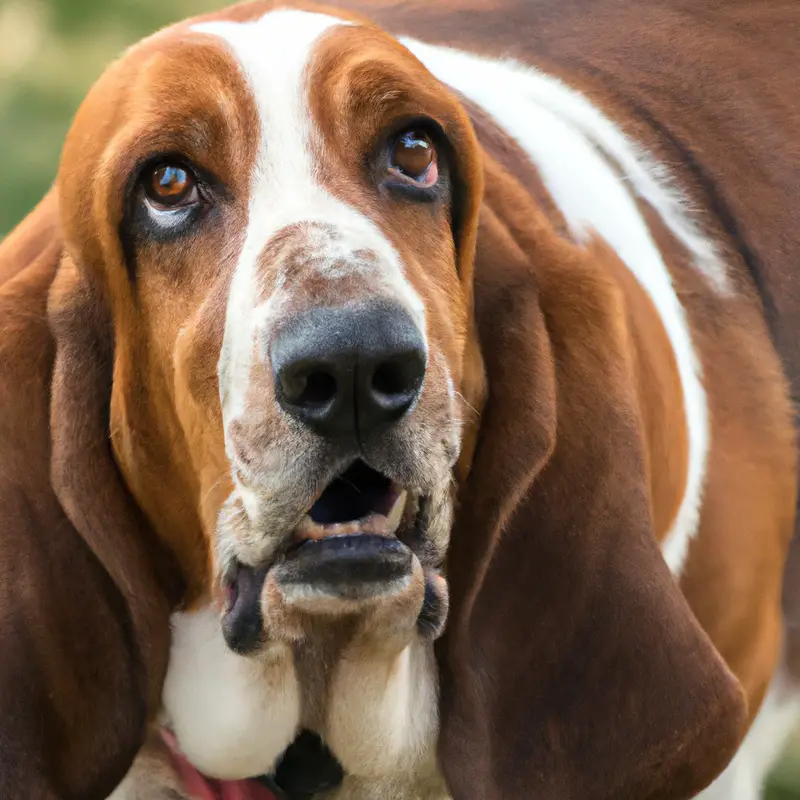
Characteristic Traits of Basset Hounds
Basset Hounds have distinctive characteristic traits that make them stand out. Firstly, they have a long body with short legs, droopy ears, and a wrinkled face that gives them a unique appearance.
Secondly, Bassets are known for their incredible sense of smell, which is one of the strongest in the dog kingdom.
They are also known to be friendly, gentle, and affectionate, making them great family pets. Additionally, Basset Hounds tend to be laid-back and have a calm temperament.
These traits, combined with their loyalty and patience, make Basset Hounds a beloved breed among dog lovers.
Instincts and Protective Behavior in Basset Hounds
Instinctual Traits in Basset Hounds
Basset Hounds have distinct instinctual traits that make them unique. Their powerful sense of smell is one of their most notable traits.
Their long ears serve a purpose too – they help trap scents and guide them towards their nose.
Basset Hounds are also known for their stubborn nature, which can be attributed to their hunting background. This breed tends to follow their own instincts rather than blindly obey commands.
Understanding these instinctual traits is key to better understanding and training your Basset Hound.
How Basset Hounds Express their Protective Nature
Basset Hounds express their protective nature through various behaviors.
They are known for being gentle and loyal companions to their family.
One way they show their protectiveness is by barking or howling to alert their owners of any potential danger.
They may also become more alert and attentive when they sense something unusual or unfamiliar in their surroundings.
Some Basset Hounds may even try to physically block or shield their family members if they perceive a threat.
These protective behaviors are a natural instinct of the breed and can be quite endearing to witness.
Factors Influencing Protective Instincts in Basset Hounds
The protective instincts of Basset Hounds can be influenced by various factors, including their genetic predisposition.
Bassets are known to have a natural tendency to protect their families.
Additionally, early socialization and positive experiences can further enhance their protective nature.
The environment in which they are raised and the relationships they form with their owners and other animals also play a significant role in shaping their instincts.
It is important to provide a loving and secure environment for Basset Hounds to nurture and encourage their protective behaviors.
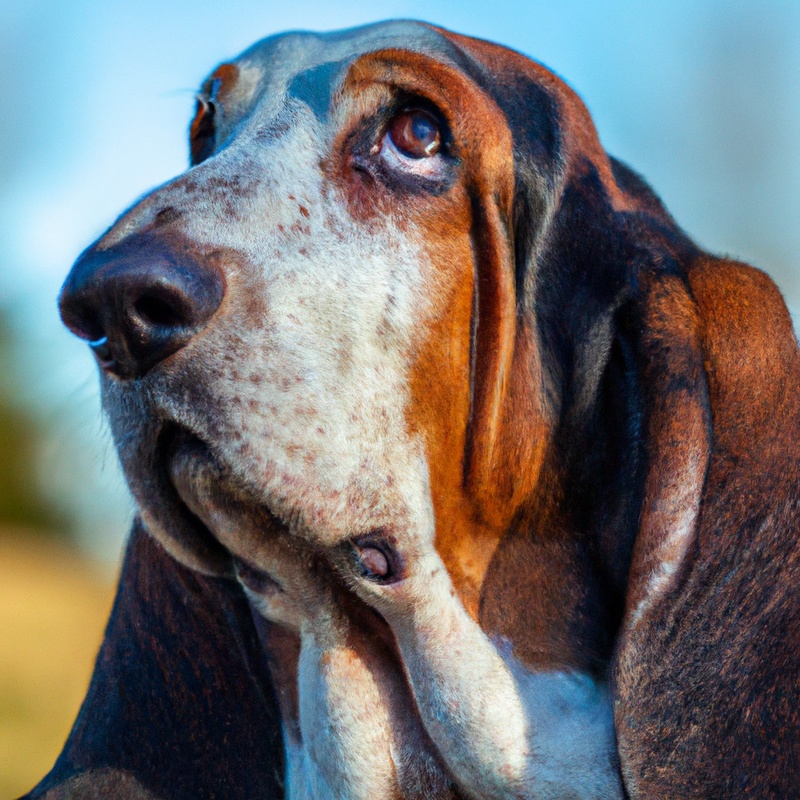
Nurturing and Encouraging the Protective Instinct in Basset Hounds
Bonding with Your Basset Hound
Building a strong bond with your Basset Hound is key to nurturing their protective instinct.
Spend quality time with your furry friend through activities like daily walks, playtime, and cuddling.
Communicate with them using positive reinforcement techniques, such as treats and praise, to establish trust and mutual understanding.
Consistency and patience are vital in developing a deep connection with your Basset Hound.
Remember, the more you invest in the bond, the stronger their protective instinct will flourish.
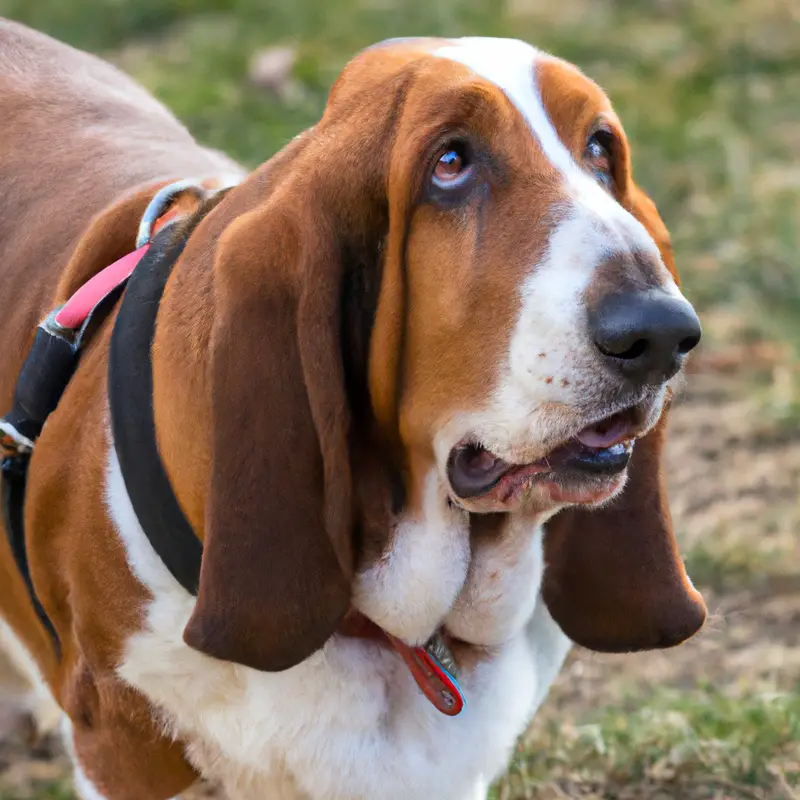
Socialization and Training to Enhance Protective Instinct
Socialization and training are key in enhancing the protective instinct of Basset Hounds. By exposing them to various situations, people, and animals from a young age, they become comfortable and confident, leading to a stronger protective instinct.
Training should focus on obedience, commands, and positive reinforcement to establish clear boundaries and expectations.
Consistency and patience are crucial in developing this instinct. Regular socialization and ongoing training will help nurture and enhance the protective nature of Basset Hounds.
Providing a Secure and Loving Environment
To provide a secure and loving environment for your Basset Hound, make sure they have a comfortable and safe space to call their own. This could be a crate or a designated area in the house.
Be consistent with your daily routine and provide them with plenty of mental and physical stimulation through playtime and regular exercise.
Establish clear rules and boundaries, and always use positive reinforcement in training. Lastly, show them love and affection through cuddles, gentle words, and regular grooming sessions.
Managing and Channeling Protective Behaviors in Basset Hounds
Preventing Over-Protectiveness
Preventing over-protectiveness in Basset Hounds is essential for maintaining a balanced and well-behaved pet.
Here are a few tips to keep in mind:
- Socialize your Basset Hound from a young age to expose them to different people, animals, and environments. This helps them feel more confident and less anxious about perceived threats.
- Provide consistent obedience training to establish yourself as the pack leader. Teaching basic commands like sit, stay, and leave it will help your Basset Hound understand boundaries and when to protect and when to relax.
- Avoid reinforcing over-protective behavior by not encouraging excessive barking or growling at every little noise. Instead, redirect their attention to more positive activities, such as playing with toys or participating in training exercises.
- Offer mental and physical stimulation through activities like puzzle toys, interactive games, and regular exercise. This helps to satisfy their natural instincts and keeps them occupied.
By implementing these strategies, you can help your Basset Hound develop a healthy balance between protectiveness and calmness, ensuring a happy and well-adjusted pet.
Instilling Good Judgment in Basset Hounds
Instilling good judgment in Basset Hounds is essential for their overall well-being. To do this, I recommend providing consistent and positive training from an early age.
Teaching basic obedience commands such as “sit,” “stay,” and “come” will help them make better decisions in various situations.
It’s also important to expose them to different environments, people, and animals to help them develop social skills and learn how to assess new situations. Building trust and establishing clear boundaries will further guide their decision-making process.
Benefits of Properly Managing Protective Behaviors
Properly managing the protective behaviors of your Basset Hound can provide several benefits.
Firstly, it helps to prevent over-protectiveness, ensuring that your dog’s protective instincts are appropriately balanced.
Secondly, by instilling good judgment in your Basset Hound, you can ensure that they are able to distinguish between genuine threats and non-threatening situations.
Thirdly, managing their protective behaviors helps to create a harmonious and stable environment for both your dog and your family.
Overall, by properly managing their protective behaviors, you can create a well-adjusted and confident Basset Hound who can protect their family when necessary, without unnecessary aggression or anxiety.
Final Verdict
It is clear that Basset Hounds possess a strong instinct to protect their family.
Their loyal and affectionate nature, combined with their keen sense of smell and their history as hunting dogs, make them naturally inclined to be protective.
By understanding their background and characteristic traits, nurturing their protective instincts through bonding, socialization, and training, and managing and channeling their protective behaviors, we can create a secure and loving environment for our Basset Hounds to thrive.
Ultimately, embracing and enriching their innate drive to protect allows us to build a stronger bond with these wonderful companions.

